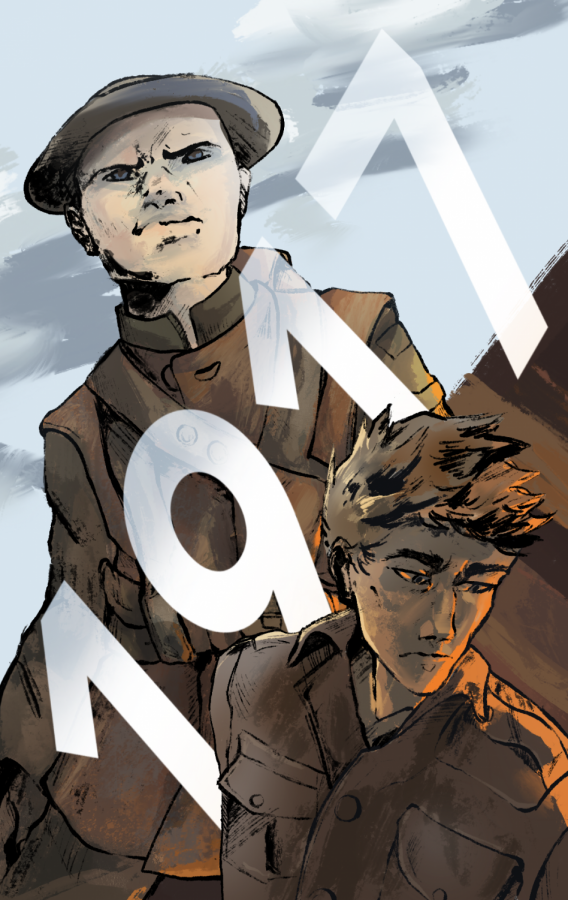A Review on “1917”
The gunshots, the corpses, the trauma. The unforgiving sounds of war, of heartbreak, of helplessness. This is 1917.
Written and directed by Sam Mendes, 1917 tells the story of Lance Corporals William Schofield (George MacKay) and Tom Blake (Dean-Charles Chapman) and their journey through the trenches past the enemy to give a letter that will stop the troops from falling into the enemy’s trap, saving sixteen hundred men and Blake’s older brother.
Cinematographer Roger Deakins (who just won the BAFTA cinematography award for 1917) creates a seamless one shot piece that glides the viewer through the horrors Schofield and Blake face. The music, composed by Thomas Newman, encapsulates the viewer into a suffocating space. Through this technique of filmmaking, it makes it impossible for the viewer to look away, even if there is a herd of corpses in a river.
I had been avoiding all spoilers from this movie, and went in to a late night showing and was not prepared for what I was about to see by any means. 1917 was meticulously thought out with every line, move, and shot being perfectly executed. Personally, the recent movies about the World Wars have yet to impress me, but 1917 altogether engulfed me.
At the edge of my seat, I see two young men trying to get across German territory who always seem to get into trouble. The feeling of the uncertainty of living is always around the corner, and the unprocessed grief punches the viewer in the stomach, reminding them that there is no time for sadness, the attack is only a few hours away.
Even though we primarily focus on Schofield and Blake, they are supported by an outstanding cast, most notably Benedict Cumberbatch (Doctor Strange) Andrew Scott (Sherlock), Richard Madden (Game of Thrones) and Colin Firth (Kingsman).
Every movie has its flaws, and an odd point I have to make (that I didn’t really notice until after watching it) is the lack of women in this film. While somewhere in France, Schofield hides from a German soldier and meets a French girl who saves an orphan baby girl. Schofield gives them all the food and milk he had. My friend who I saw the film with, actually came to the conclusion that he did that not out of kindness but out of fear that it would go to waste. This rehabilitated the sense of discomfort and uncertainty in me, fearing that he wouldn’t get there in time and hundreds would die.World War I was primarily made of soldiers, male doctors and male nurses which keeps 1917 historically accurate. Mendes told the story of his grandfather, his experiences and how something as tragic as World War I should never happen again.
1917 gives a new perspective to life, brings life to how war affects soldiers, and how violence can leave a scar on humanity.
Your donation will support the student journalists of Canyon High School. Your contribution will allow us to pay for our print issue magazine, website, and equipment costs.







